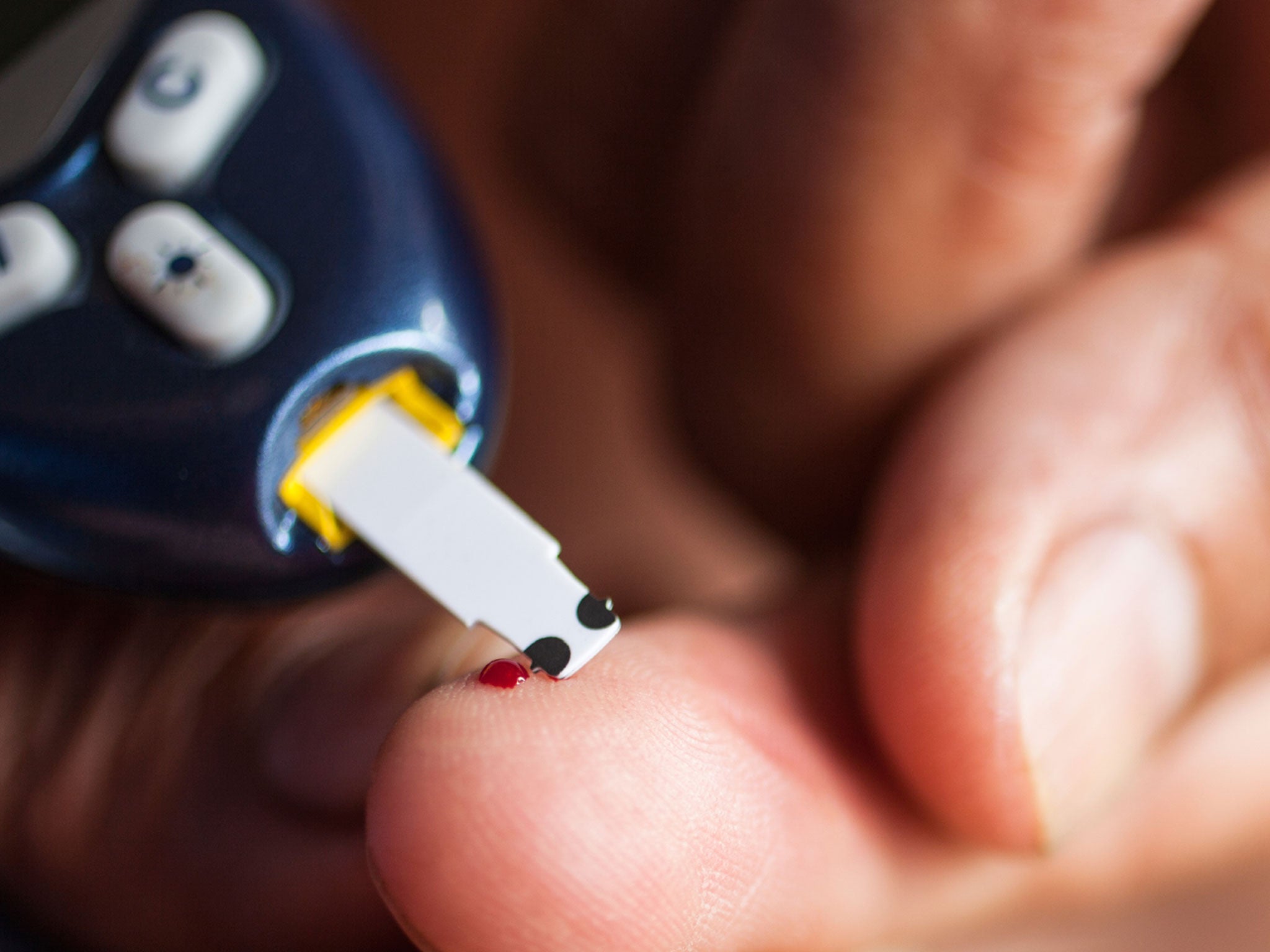Diabetes: Losing weight 'can reverse disease long-term'
A low-calorie diet can keep diabetes at bay even in those living with the disease for a decade

Your support helps us to tell the story
From reproductive rights to climate change to Big Tech, The Independent is on the ground when the story is developing. Whether it's investigating the financials of Elon Musk's pro-Trump PAC or producing our latest documentary, 'The A Word', which shines a light on the American women fighting for reproductive rights, we know how important it is to parse out the facts from the messaging.
At such a critical moment in US history, we need reporters on the ground. Your donation allows us to keep sending journalists to speak to both sides of the story.
The Independent is trusted by Americans across the entire political spectrum. And unlike many other quality news outlets, we choose not to lock Americans out of our reporting and analysis with paywalls. We believe quality journalism should be available to everyone, paid for by those who can afford it.
Your support makes all the difference.Patients who reverse their diabetes and then keep their weight down can remain free of the condition, new research has found.
The study found that even people who have had Type 2 diabetes for up to 10 years can reverse their condition after adopting a very low calorie diet.
Professor Roy Taylor, a world expert on the condition which affects two-and-a-half million people in this country and is growing, published his latest findings in the journal Diabetes Care.
The Professor of Medicine and Metabolism at Newcastle University has previously shown that patients with Type 2 diabetes who successfully lose weight can reverse their condition because fat is removed from their pancreas, returning insulin production to normal.
A study led by Professor Taylor five years ago showed that diabetes could be reversed by a very low calorie diet.
International interest was sparked but the study only lasted eight weeks and the question remained whether the diabetes would stay away.
In this new study, 30 volunteers with Type 2 diabetes embarked on the same diet of 600 to 700 calories a day.
Participants lost on average 14 kilograms - just over 2 stone. Over the next six months they did not regain any weight.
The group included many people with longer duration diabetes, defined as more than eight years and ranging up to 23 years.
Overall, 12 patients who had had diabetes for less than 10 years reversed their condition and six months later they remained diabetes free.
In fact, after six months a 13th patient had reversed their diabetes.
Though the volunteers lost weight they remained overweight or obese but they had lost enough weight to remove the fat out of the pancreas and allow normal insulin production.
Professor Taylor said: “What we have shown is that it is possible to reverse your diabetes, even if you have had the condition for a long time, up to around 10 years.
“If you have had the diagnosis for longer than that, then don't give up hope - major improvement in blood sugar control is possible.
“The study also answered the question that people often ask me - if I lose the weight and keep the weight off, will I stay free of diabetes? The simple answer is yes!
“Interestingly, even though all our volunteers remained obese or overweight, the fat did not drift back to clog up the pancreas.
“This supports our theory of a Personal Fat Threshold.
“If a person gains more weight than they personally can tolerate, then diabetes is triggered, but if they then lose that amount of weight then they go back to normal.
“Individuals vary in how much weight they can carry without it seeming to affect their metabolism - don't forget that 70% of severely obese people do not have diabetes.
“The bottom line is that if a person really wants to get rid of their Type 2 diabetes, they can lose weight, keep it off and return to normal.
Press Association
Join our commenting forum
Join thought-provoking conversations, follow other Independent readers and see their replies
Comments